
Date: 2024-11-08 Visitcount: 17
As technology and culture continue to converge in our interconnected world, the ability to effectively navigate and operate across these domains is essential for students. In particular, understanding the role of artificial intelligence (AI) in fostering IT literacy, cross-cultural awareness, and communicative competence is vital for success in today’s globalized society. Our latest project, “AI for Education系列实证教学研究项目经费 (AI for Education: Fostering Cross-Cultural Competence and IT Literacy Through Global Learning Innovations),” aims to address these needs by equipping students with the critical skills necessary for the 21st century.
This initiative, led by the College of Education of Zhejiang University, integrates AI learning within a cross-cultural framework, fostering IT literacy, cultural understanding, and communicative competence. By doing so, we prepare our students not only to understand how AI functions across different global settings but also to appreciate its societal impacts. Our project has clear objectives: enhancing IT literacy, fostering cross-cultural understanding by exploring AI’s diverse uses and perceptions across cultures, developing communicative competence in varied settings, and promoting innovative learning methods.
As part of this project, the “AI in Education” course has hosted a series of expert-led lectures delivered by distinguished scholars, each designed to deepen students’ understanding of AI and its application in various cultural contexts.
On September 20, 2024, Professor Roza Zhussupova from L.N. Gumilyov Eurasian National University in Kazakhstan presented an enlightening lecture titled “Natural Language Processing in Education.” Professor Zhussupova introduced students to natural language processing (NLP) and its wide-ranging applications, delving into its role in education from a cross-cultural perspective and discussing the challenges and limitations of NLP on a global scale. In her lecture, Professor Roza Zhussupova also shared insights from her experience in integrating AI into her teaching practices. She presented findings from a recent cross-cultural project that demonstrated how Natural Language Processing (NLP) tools, such as automated corrective feedback and translation technologies, supported students from China and Kazakhstan in their language acquisition and cross-cultural exchange. This project underscored the practical benefits of AI-powered tools in fostering effective communication and mutual understanding among students from diverse backgrounds, making her session both highly relevant and impactful for those interested in the intersection of AI and language education.
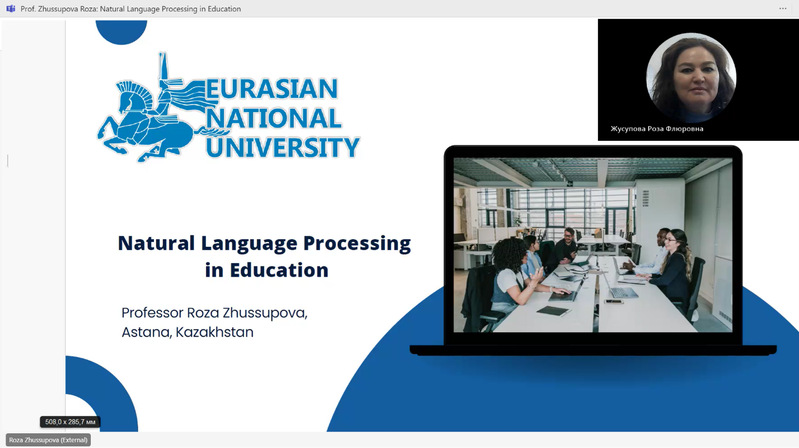
Following this, on September 25, 2024, Professor Yin Chengjiu from Kyushu University, Japan, delivered a thought-provoking session on “Computer Vision in Education.” Professor Chengjiu explored the foundational principles of computer vision and its role in automating content analysis and creating interactive learning environments. He also provided insights into the unique challenges of implementing computer vision responsibly, especially in culturally diverse educational settings.
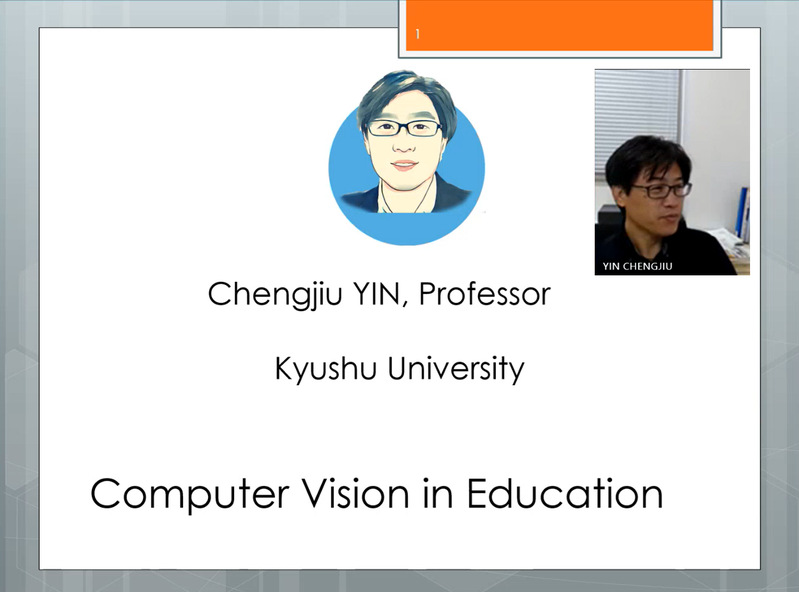
On September 27, 2024, Professor Ahmed Tlili from the Smart Learning Institute of Beijing Normal University, China, conducted a lecture on “Robotics in Education.” Professor Tlili’s session introduced students to educational robotics, showcasing advancements and applications of robotics technology in different cultural contexts and discussing the diverse impacts of robots on education worldwide.
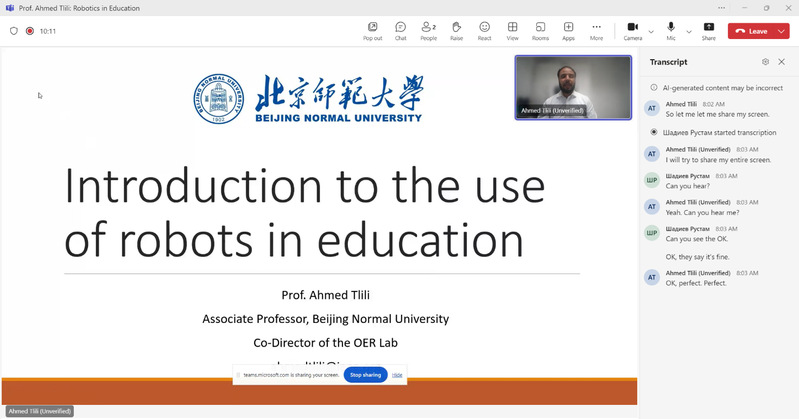
Continuing the series, Professor Fahriye Altinay from Near East University in Northern Cyprus presented on October 23, 2024, with a focus on “Ethics and Social Implications of AI in Education.” Her lecture offered a comparative cultural analysis of AI ethics, explored AI’s impact on teaching and learning, and provided valuable insights from her university's AI-based educational project, including the AI-based Professor Dux initiative.
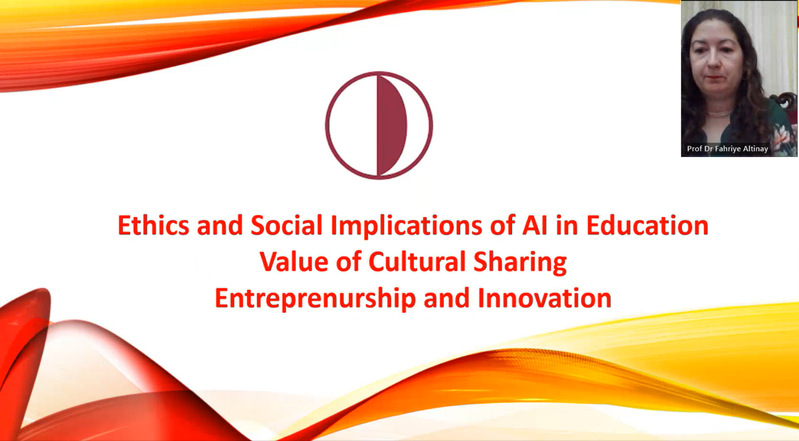
Most recently, on October 25, 2024, Professor Hwang Wu-Yuin from Taiwan Central University led an engaging lecture on “Machine Learning for Educational Applications.” Professor Hwang guided students through the complexities of machine learning, illustrating its applications across cultures and sharing insights from his pioneering research in the field.
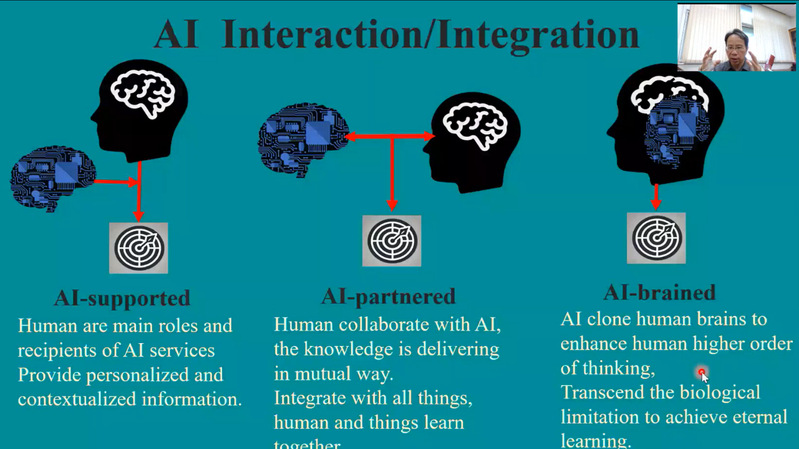
Each session, hosted via Microsoft Teams, has provided our students with a uniquely immersive learning experience, bridging theoretical concepts with practical, ethical, and global perspectives on AI in education.
Additionally, as part of their coursework, students engaged in a cross-cultural exchange with peers from Northern Cyprus and Kazakhstan. Through virtual reality content captured with 360-degree video cameras, students from China, Northern Cyprus, and Kazakhstan shared insights into their cultures, showcasing various AI tools and their applications within local cultural contexts. This immersive approach allowed students to virtually experience their peers’ learning environments, gaining a deeper understanding of diverse AI applications worldwide.
This successful lecture series and cross-cultural exchange highlight the innovative educational practices of the College of Education at Zhejiang University, equipping students to excel in a technology-driven, culturally diverse world.

